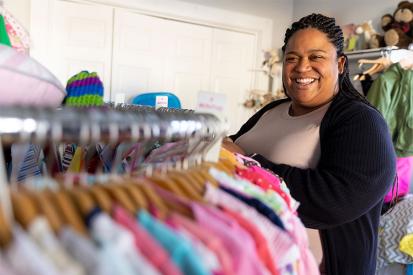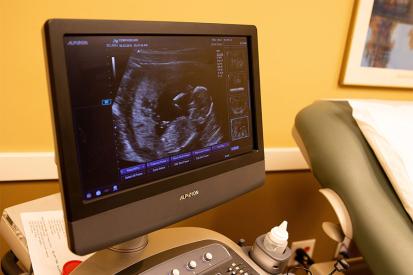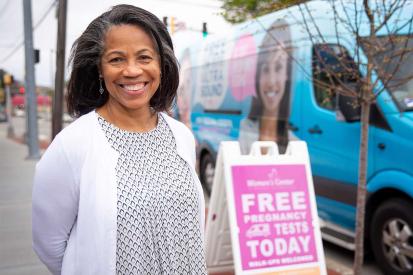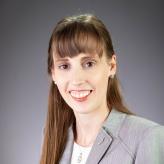The Truth About Pregnancy Centers


“They saved my life,” says ADF client Jean Marie Davis, human trafficking overcomer and executive director of Branches Pregnancy Center in Brattleboro, Vermont. “I am living proof that pregnancy centers love, serve, and commit ourselves to the men, women, and children of our communities who need our help.” Pro-life pregnancy centers like Branches provide pregnant women with the support and resources they need to choose life for their unborn child.
Yet since the U.S. Supreme Court’s landmark decision in Dobbs v. Jackson Women’s Health Organization, overturning Roe v. Wade, pro-life pregnancy centers around the country have been threatened, vandalized, and even firebombed. They’ve also become the target of smear campaigns by those who profit from abortions and activists who claim to support choice. Some states have even passed laws impeding the centers’ ability to help pregnant women, and others have tried to bury them in paperwork based on unfounded investigations. And President Biden recently proposed a new HHS rule limiting pregnancy centers’ funding.
As pro-abortion activists continue to spread lies about pregnancy centers, it’s important to know the facts: pregnancy centers provide necessary, life-affirming care to women, children, and families in need.
What are pregnancy centers?
Pregnancy centers serve women and families who may need support during or after their pregnancy. These centers offer pregnant women and new mothers, who may be feeling alone and hopeless, life-affirming alternatives and emotional, mental, material, and spiritual support.
What goods and services do pregnancy centers provide?
Pregnancy centers offer a variety of services, including:
- Free pregnancy-related services, such as ultrasounds, pregnancy tests, STD testing and treatment, and abortion pill reversal;
- Support for parents, including parenting and prenatal education classes, job training, and résumé building;
- Counseling and mental health services, such as post-abortion support and recovery; and
- Resources and supplies for new mothers and fathers, such as diapers, clothes, car seats, strollers, transportation, food, and housing.
How much do pregnancy centers give away?
In 2022, pregnancy centers provided over $358 million in goods and services including:
- over 510,000 free ultrasounds;
- over 700,000 free pregnancy tests;
- over 200,000 STI/STD tests;
- over 970,000 free consultations with new clients;
- over 3,590,000 packs of diapers;
- over 40,000 new car seats;
- over 30,000 strollers; and
- over 4,250,000 baby outfits.
These pregnancy centers serve women and families across the United States and even globally.

How have pregnancy centers been threatened?
In the months leading up to the Supreme Court’s ruling in Dobbs—and in the years since—pregnancy centers around the country have been the target of vicious attacks and vandalism.
Massachusetts Sen. Elizabeth Warren threatened to “crack down” on pro-life pregnancy centers, introducing the “Stop Anti-Abortion Disinformation Act” that authorizes targeting the speech of pro-life pregnancy centers. Other pro-abortion members of Congress sent a letter to the CEO of Google, encouraging his company to censor pregnancy centers.
But threats like these are nothing new. For years, government officials have tried to silence pregnancy centers by forcing them to promote abortion or by punishing them for engaging in life-affirming speech. After Dobbs, threats to pregnancy centers have only continued.
The media has helped fuel hostility toward these centers. The Associated Press, for example, now directs journalists to put the term “crisis pregnancy center” in scare quotes or to use “anti-abortion center” instead.
Government officials have also continued to target pregnancy centers following Dobbs. The attorneys general in New Jersey and Washington have each opened investigations into pregnancy center networks, demanding that they produce thousands of pages of documents without citing any evidence of wrongdoing. Complying with these unconstitutional demands would not only impede pregnancy centers from helping women by diverting time and resources but also threaten the privacy and safety of their employees and donors.
In Vermont, Gov. Phil Scott signed a bill that censors pregnancy centers’ ability to advertise their services and prevents pregnancy center staff and volunteers who are not licensed health-care providers from offering even non-medical information, counseling, or services related to pregnancy, such as over-the-counter pregnancy tests or peer counseling about pregnancy options.
Amid these attacks, pregnancy centers and other state attorneys general have refuted pro-abortion lies and shown how pregnancy centers help women.
Myths about pregnancy centers
Myths and lies about pregnancy centers are rampant. Below are a few of the misleading claims peddled by pro-abortion activists.
Myth #1: Pregnancy centers are ‘fake’ health clinics.
False. Most pregnancy centers offer both medical and non-medical services to clients in need. And pregnancy centers that offer medical services, such as ultrasounds, hire medical staff to do so. Nearly eighty-two percent of pregnancy centers offered ultrasounds in 2022, and nearly 36 percent offered STD testing. And non-medical pregnancy centers provide over-the-counter pregnancy tests, peer counseling, and material support, such as diapers and baby clothes.

While some pregnancy centers provide select medical services, they do not pretend to take the place of a woman’s OB-GYN physician. Instead, they offer limited medical services directed at helping women understand their unborn baby and their pregnancy. Then, these centers provide holistic services such as counseling, baby supplies, housing, education, employment support, and spiritual guidance. In 2022, 87 percent of pregnancy centers provided parenting or prenatal education, and 89 percent provided material items like diapers, strollers, and baby clothes.
Myth #2: Pregnancy centers deceive women.
False. Pregnancy centers offer truthful, evidence-based, compassionate care and information to women about their pregnancy, their unborn child, and life-affirming alternatives. These centers clearly explain their mission of serving women through offering ultrasounds and pregnancy support on their websites.
And pregnancy center counselors offer only truthful information to the women they serve. In fact, at Care Net-affiliated pregnancy centers, over 99 percent of clients described their overall experience with the pregnancy centers as positive.
Myth #3: Pregnancy centers intimidate women.
False. Despite what some abortion advocates may claim, pregnancy centers offer compassionate, non-judgmental, informed counseling to help women facing unplanned pregnancies consider their options. They do not intimidate anyone into choosing to keep their baby.
These centers share life-affirming alternatives to abortion with the women they serve. And even if those women ultimately choose abortion, most centers also offer post-abortion care and counseling. In 2022, pregnancy centers provided post-abortion recovery and support to nearly 20,000 women and men.
Does Alliance Defending Freedom represent pregnancy centers?
Yes! ADF frequently fights for the right of pregnancy centers to serve women in accordance with their pro-life beliefs. In 2018, ADF won a victory for pregnancy centers at the Supreme Court in National Institute for Family and Life Advocates (NIFLA) v. Becerra.
A law in California forced state-licensed pro-life pregnancy centers to offer free advertising for the abortion industry by informing pregnant women that the state offered free or low-cost abortion services. The law also required unlicensed centers to publish large disclosures on advertisements stipulating that they were not licensed by the state.
ADF represented NIFLA, a nonprofit network of pregnancy centers around the U.S., to challenge the law. In June 2018, the Supreme Court overturned California’s unconstitutional law. Justice Clarence Thomas, writing for the majority, held that “the people lose when the government is deciding which ideas should prevail.”
In a similar case, the city of Hartford, Connecticut, passed an ordinance forcing pregnancy centers to post signs and begin conversations with a government-scripted disclaimer. ADF challenged the ordinance on behalf of Caring Families Pregnancy Services, and in July 2020, the city agreed to no longer enforce the ordinance against Caring Families.

Today, ADF continues to defend pro-life pregnancy centers in court.
Government officials in many states have enacted laws explicitly targeting pro-life pregnancy centers or medical providers. ADF has filed lawsuits in each of those states:
- In Washington, ADF attorneys represent the Obria Group, a network of medical centers that provide important care such as ultrasounds, pregnancy testing, STD testing, and more for women who need it. Washington’s notoriously pro-abortion attorney general unconstitutionally singled out Obria because of the group’s pro-life viewpoint. The AG’s “civil investigative demands” cited no supporting evidence to justify an investigation.
- In Vermont, ADF attorneys represent three pro-life organizations challenging a Vermont law that impedes the ability of pregnancy centers to provide help and support to women and families. First, the law censors the centers’ ability to advertise their free services. Second, it precludes centers from offering even non-medical services, information, and counseling unless provided by a licensed health-care provider.
- In New Jersey, ADF attorneys represent First Choice Women’s Resource Centers. The state attorney general selectively targeted First Choice—based on its religious speech and pro-life views—with a wide-ranging, unfounded, and burdensome subpoena.
- In New York, ADF is challenging a law that would force pro-life groups to hire pro-abortion employees. Our clients in that case are all dedicated to protecting life, but the law would force them to employ people who don’t share that vision.
- In Illinois, ADF represents multiple pregnancy centers challenging a law that would compel pro-life doctors and pregnancy centers to violate their pro-life and religious beliefs, by informing women of so-called “benefits” of abortion and referring them to abortion providers.
Pregnancy centers are worth fighting for. They provide much needed care for women and families, and they empower expectant mothers to make life-affirming choices for both themselves and their children. The government has no business steering women away from life-affirming care. ADF will continue to represent these centers and protect their right to serve women, children, and families in need.

